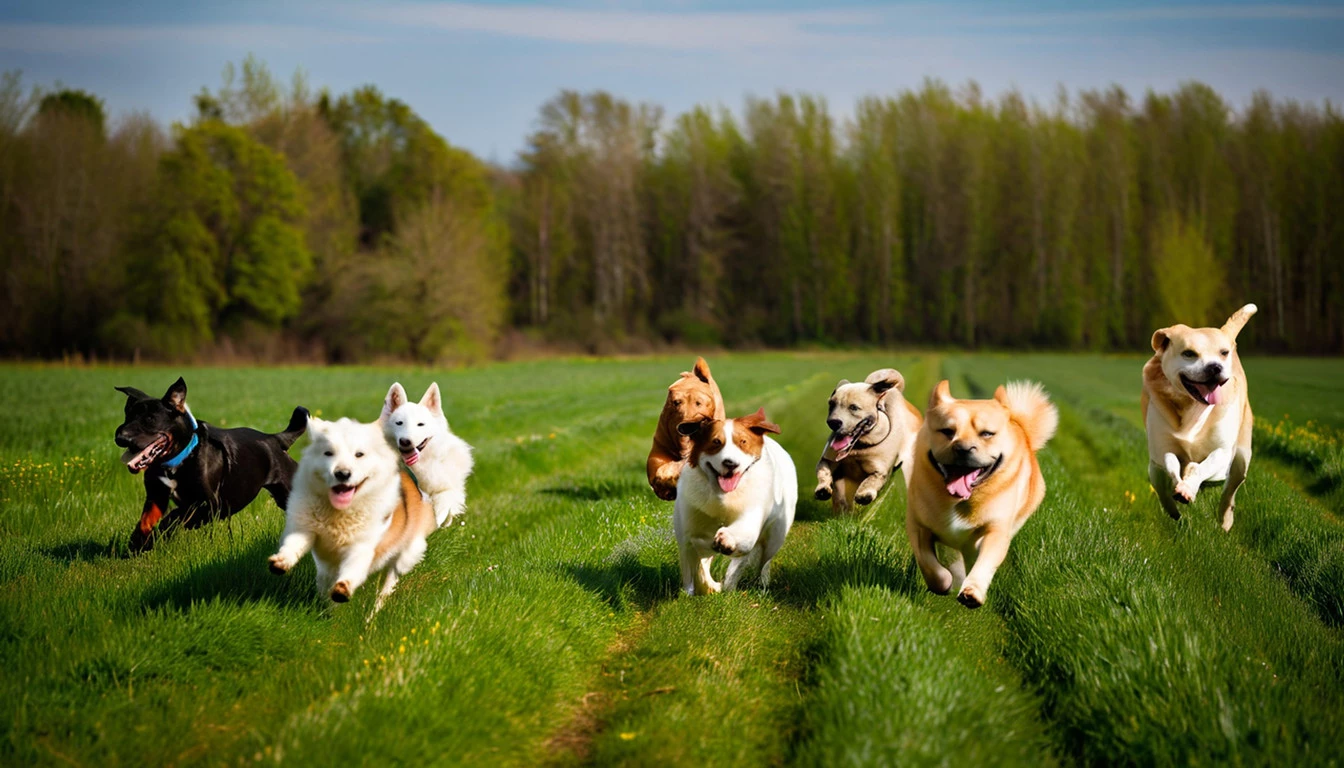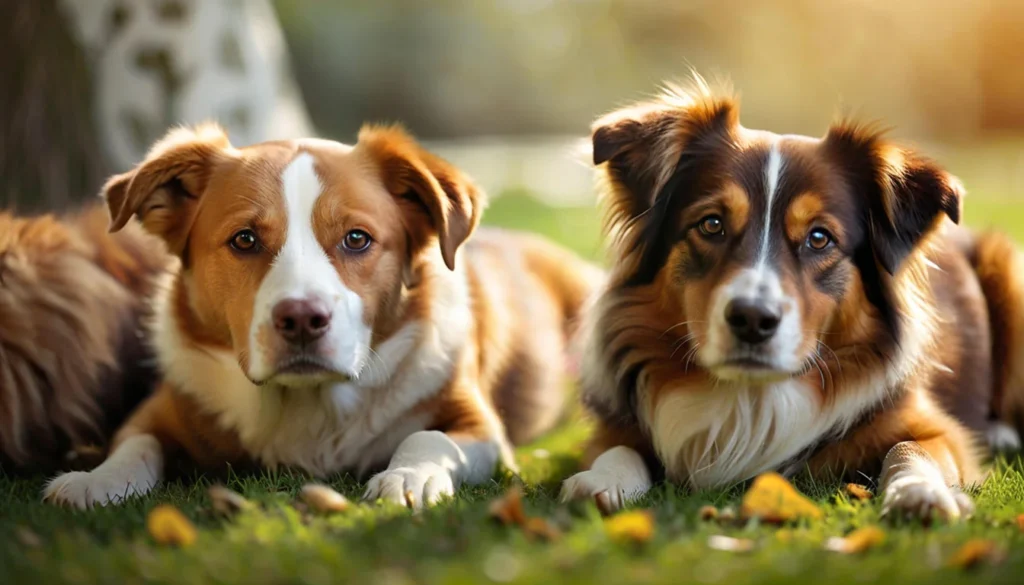There's something special about the bond between a dog and its owner. I remember the first time I held a small puppy. It was a moment of pure joy. It reminded me of the companionship and loyalty dogs provide.
For those of us who cherish these furry friends, knowing what makes certain breeds more obedient is key. The 25 most obedient small dog breeds listed here are not only trainable but also loving family members. They are eager to please, making our lives richer and more fulfilling.
Choosing one of the best behaved small dogs can make training easier and create a harmonious household. In this article, we'll explore why these breeds excel in obedience. We'll also look at how they can become an integral part of your family.
We'll cover everything you need to know about these exceptional small dog breeds. From their unique characteristics to valuable training tips, we've got you covered.
Key Takeaways
- Understanding the bond between dogs and humans fosters deeper relationships.
- Knowing the 25 most obedient small dog breeds can aid in choosing the right companion.
- Small dog breeds with good obedience are often easier to train and integrate into families.
- Best behaved small dogs provide loyalty and joy to their owners.
- Effective training methods enhance obedience and overall companionship.
Introduction to Obedient Dog Breeds
Thinking about obedient dog breeds often means more than just their smarts. An introduction to obedient dog breeds shows that a dog's eagerness to please is key. Some breeds are naturally obedient, but many small dogs can learn well with the right approach.
Terriers and poodles are known for their quick response to commands. They show what it means to be a trainable dog breed that loves to follow. The bond between dog and owner is vital. Training builds trust and makes following commands a joy.
Knowing each breed's unique traits and needs helps in training. By figuring out what motivates your dog, you can get the obedience you want. This journey strengthens your bond and makes home life better.
Importance of Trainable Dog Breeds
Having a trainable dog can really change how a household works. These dogs are more than just obedient; they're partners in fun activities. They learn good behaviors, which means less trouble and more happiness.
For families, getting a small dog that listens is key. They pick up commands fast and fit in well with others. Training them brings everyone closer as they work together and learn new things.
Trained dogs are more than pets; they're a safety net. They know to stay or come when called, which keeps everyone safe. They also fit right into busy lives, making outings fun and worry-free.
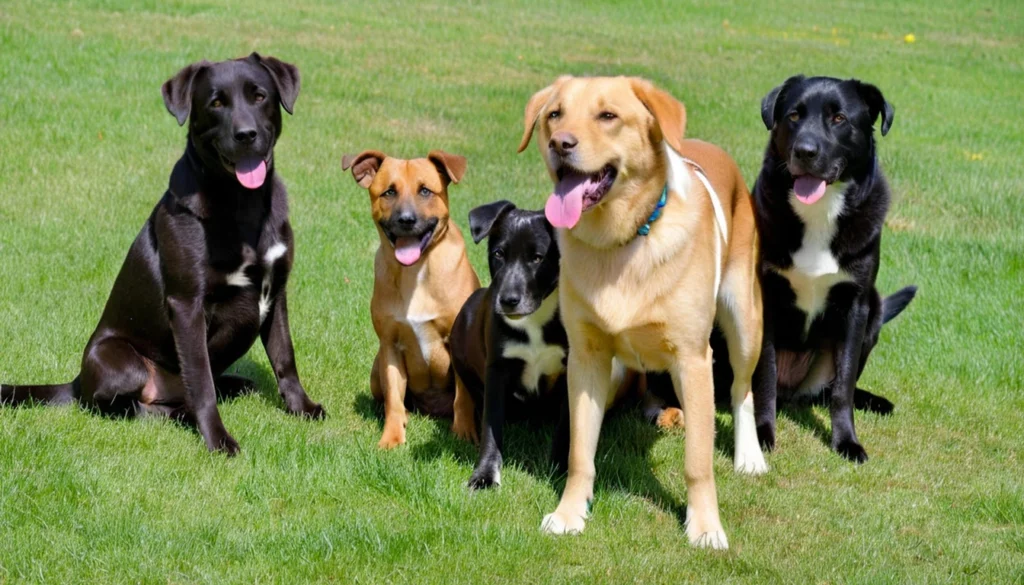
Choosing trainable dog breeds makes life better for both pets and families. Training them is rewarding, building strong bonds filled with respect and happiness.
Characteristics of Obedient Dog Breeds
Knowing the traits of obedient dog breeds is key for anyone wanting a trainable pet. These dogs are smart and learn fast. They also get along well with people, making training easier.
Some small dog breeds are eager to please. This eagerness means they're quick to follow commands and learn new things. They also have great communication skills, making training sessions more effective.
Adaptability is another trait of obedient dog breeds. They fit into different homes and routines well. Their playful nature makes training fun, strengthening the bond between dog and owner.
| Characteristic | Description |
|---|---|
| Intelligence | Quick learners that pick up commands easily. |
| Sociability | Friendly and enjoy interacting with humans. |
| Eagerness to Please | Willingness to follow commands. |
| Adaptability | Adjusts well to different environments. |
| Playfulness | Makes training sessions fun and effective. |
Small Dog Breeds Renowned for Their Obedience
Several small dog breeds stand out for their obedience. The Havanese and Papillon are among the best. They are known for their trainability and eagerness to please.
The Havanese is friendly and loves to be with family. They do well with positive training. Their playful nature makes them a pleasure to train.
The Papillon is intelligent and eager to learn. Despite their small size, they pick up commands fast. Their agility and energy make training fun.
These breeds show that small dogs can be just as obedient as big ones. With the right training, they can reach their full potential.
| Breed | Trainability | Temperament | Exercise Needs |
|---|---|---|---|
| Havanese | High | Friendly and affectionate | Moderate |
| Papillon | Very High | Intelligent and energetic | High |
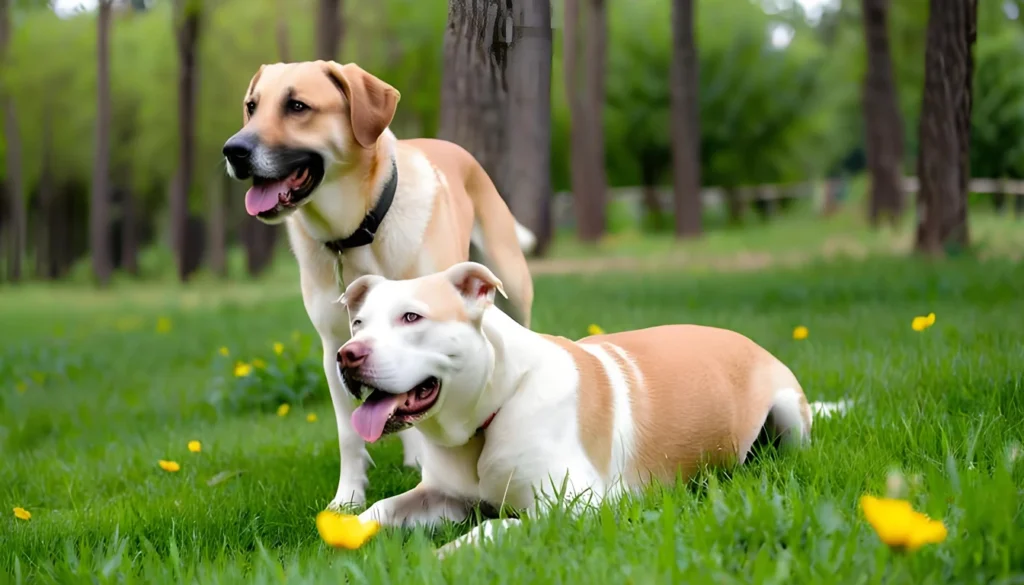
25 Most Obedient Small Dog Breeds
Exploring the 25 most obedient small dog breeds reveals their unique qualities and training potential. These dogs are known for their loving nature and ability to adapt. I'll share key traits of each breed and why they're great for training.
Overview of Each Breed
- Beagle: Known for their keen sense of smell and playful attitude, Beagles make excellent companions and are relatively easy to train.
- Poodle: Available in miniature and toy sizes, Poodles excel in obedience and intelligence, ranking among the easiest small dog breeds to train.
- Cavalier King Charles Spaniel: This breed is not only friendly but also highly trainable, making them popular among families.
- Miniature Schnauzer: Their energetic personality and quick learning capabilities ensure they stand out on the list of obedient small dog breeds.
- Boston Terrier: These lively little companions are often eager to please, making them a fantastic choice for dog owners.
Why They Stand Out
Each of the 25 most obedient small dog breeds has its own reasons for standing out. Their intelligence, eagerness to please, and affectionate nature make them great pets. Poodles, for example, are not only trainable but also respond well to positive reinforcement.
This makes them top choices for training. With patience and commitment, these dogs can learn many commands and tricks.
Best Behaved Small Dogs for Families
Choosing a pet for your family means finding the best behaved small dogs. They should fit well into family life. Breeds like the Pembroke Welsh Corgi and Miniature Schnauzer are great for families.
The Pembroke Welsh Corgi is very affectionate, making it perfect for kids. It's active, loyal, and loves to please. This makes it one of the best behaved small dogs.
Miniature Schnauzers are also great. They are friendly and loyal. Their intelligence and alertness make them easy to train. They are playful, which kids love, and also watchful.
These breeds are not just good with families. They also bring joy and companionship. Training them well makes them even better for your home.
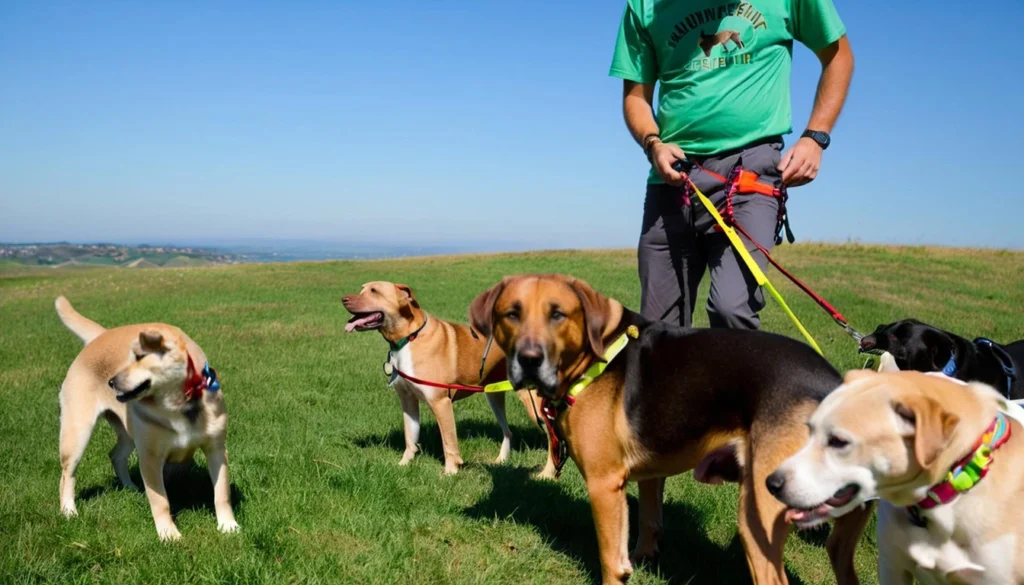
Top Small Dog Breeds for Training
Looking for the best small dog breeds for training? Certain breeds are known for their intelligence and eagerness to learn. The Poodle and Papillon are often at the top of the list. They learn commands fast, making them great for training.
Small dog breeds known for good obedience love to please their owners. They are curious and full of energy, always up for a challenge. For example, Poodles love to learn and adapt quickly to new tasks.
The Papillon, despite its small size, is very smart. It enjoys training and does well in agility and obedience competitions. Training these dogs is rewarding and fun, thanks to their positive response to encouragement.
In short, choosing the right small dog breed for training can make a big difference. Breeds like the Poodle and Papillon are not only obedient but also bring joy and companionship to your home.
Easiest Small Dog Breeds to Train
Looking for the easiest small dog breeds to train? Several stand out for their intelligence and eagerness to please. The Yorkshire Terrier and Bichon Frise are known for their quick learning. They love positive reinforcement, making training fun for both dog and owner.
Yorkshire Terriers are agile and smart. They do well in commands and tricks, keeping training sessions fun. Bichon Frises also listen well, responding quickly to commands. Their happy nature makes training feel like play.
Many small dog breeds listen well and learn easily. Consistency and patience are key. With the right approach, even tough breeds can become obedient friends.
Understanding Each Breed's Personality
Every small dog breed has its own special traits that shape their small dog temperament. Knowing about these traits is key for training and getting along with your dog. These dogs show different behaviors, depending on their breed.
Some small breeds love to play and are full of energy. They're great for people or families who are always on the move. Others are calm and love to cuddle, doing well in quieter homes. Knowing these differences helps pick the right breed and train them better.
| Breed | Temperament | Energy Level |
|---|---|---|
| Pomeranian | Friendly, Alert | High |
| Bichon Frise | Playful, Affectionate | Medium |
| Dachshund | Curious, Stubborn | Medium |
| Chihuahua | Bold, Loyal | Low to Medium |
| Shih Tzu | Gentle, Outgoing | Low |
Understanding a breed's personality is crucial. It shows how things like energy and social skills affect a dog's character. These traits play a big role in training and finding the right home for a dog.
Tips for Training Your Small Dog
Training a small dog can be both rewarding and challenging. A few key strategies can help you succeed. Here are some effective tips for training small dogs that I recommend.
First, establish a routine. Dogs, especially smaller breeds, love consistency. Regular training sessions, even brief ones, help reinforce commands and behaviors. Use positive reinforcement by rewarding your dog with treats, praise, or playtime when they follow commands well. This makes learning a positive experience.
Using commands and hand signals improves communication with your dog. Keep commands simple to avoid confusion. Words like "sit," "stay," and "come" are good to start with. Use distinct hand signals with these verbal cues to help your dog understand what you want.
Make training sessions fun and engaging. Incorporate games to motivate your dog. For example, playing fetch can reinforce the "come" command while providing exercise. This approach makes learning fun, encouraging your dog to participate.
Patience is key in training. Small dogs can be stubborn, so celebrate small successes. If your dog struggles with a command, break it down into smaller parts. This makes it easier for your furry friend.
In summary, a mix of routine, positive reinforcement, and engaging activities makes training effective. By following these tips, you'll see better behavior and a stronger bond with your dog. Stay dedicated and enjoy the journey!
Common Challenges When Training Small Breeds
Training small dog breeds can be rewarding but comes with challenges. One big issue is stubbornness. Many small dogs have a strong will, making obedience training tough. Patience and consistency are crucial.
Distractions are another big problem. Small dogs, being energetic, can ignore commands when distracted. Training in quiet places helps reduce these distractions.
Small breeds also have short attention spans. It's hard to keep them focused in long sessions. Short, engaging lessons help keep them interested.
Innovative methods like positive reinforcement are helpful. Using treats or toys as rewards motivates them. A calm environment is also key to reduce stress for both dog and trainer.
Here's a quick overview of common challenges and how to tackle them:
| Challenge | Possible Solution |
|---|---|
| Stubbornness | Use patience and consistent commands. |
| Distractions | Train in quiet, low-distraction environments. |
| Poor Attention Span | Keep sessions brief and engaging. |
| High Energy Levels | Incorporate physical exercise before training. |
| Fear or Anxiety | Create a safe and low-stress training atmosphere. |
The Benefits of an Obedient Dog
Having an obedient dog brings many benefits. It makes our home safer for both of us. Dogs that are trained are less likely to get into trouble, giving us peace of mind.
Training helps strengthen the bond between a dog and its owner. When my dog listens, it shows we understand each other better. This trust makes our time together happier and more enjoyable.
Dealing with distractions can be tough without training. But an obedient dog handles these situations well. This leads to better interactions with others, making outings more fun for both of us.
Training is a key part of dog ownership. It helps us communicate better and enjoy each other's company more. With dedication, the rewards of having an obedient dog will be clear, leading to a happy life together.
Conclusion
Finding the right small dog breed for obedience training is key for your pet's happiness and your family's well-being. Each breed has unique traits that make them better for training. Knowing these traits can greatly improve your pet-owning experience.
My exploration of obedient small dog breeds showed me how important careful selection is. It's vital for matching training expectations and household dynamics.
When choosing a small dog, consider your lifestyle. Remember, patience, consistency, and understanding each breed's needs are crucial for training success. It's about building a loving bond and fostering great obedience.
Training a small dog can be joyful and rewarding. By choosing from the most obedient breeds, pet owners can enjoy a fulfilling relationship with their furry friends.

